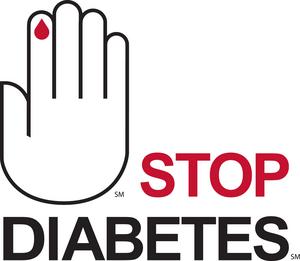Type 2, Weight Loss and Control – Stop Dreaming, Act NOW
 Do you (or a loved one) have type 2 diabetes and you’re under the impression that your blood glucose would rapidly fall into control if only you could just lose weight? Have you heard this promise from your healthcare provider (HCP)?
Do you (or a loved one) have type 2 diabetes and you’re under the impression that your blood glucose would rapidly fall into control if only you could just lose weight? Have you heard this promise from your healthcare provider (HCP)?
As a dietitian and diabetes educator nothing would please me more than to be able to say this is true. But it’s often not the case and particularly so as type 2 progresses over the years. My message to you, stop dreaming and act NOW!
The main mantra to people with type 2 diabetes, especially early on, used to be lose weight. Though losing 10 to 20 pounds can, especially early on after diagnosis, cause blood glucose to plummet and other medical problem to improve, research shows the continually pounding about weight loss that people often get from their health care provider needs to change. We know much more now about the progression of type 2.
Prediabetes, But Nearly No One Knows
 In early March 2010, a research article titled Diabetes Risk Reduction Behaviors Among U.S. Adults with Prediabetes published in American Journal of Preventive Medicine, put in writing what many experts (including myself) conjectured.
In early March 2010, a research article titled Diabetes Risk Reduction Behaviors Among U.S. Adults with Prediabetes published in American Journal of Preventive Medicine, put in writing what many experts (including myself) conjectured.
Guest Post from diabetesmine.com: From Green Beer to Guinness Stout, Champagne, and More – Tips to Sip It Safely
This guest blog appeared on diabetesmine.com on 3/15 just in time for St Patrick's Day 2010:
Oprah Does Diabetes, But the Diagnosis? Fair to Poor

Oprah was finally to take on America’s Silent Killer – diabetes. YES! I first heard this from a diabetes educator colleague with the inside scoop. Soon the diabetes online community was buzzing with morsels of info leaking out about how Oprah and her producers would present diabetes. It wasn’t sounding good – heavy on scare tactics about complications and bold orders for behavior changes from Oprah’s famed health gurus.
Hypoglycemia and Diabetes: Possible? Yes, Misconceptions? Many!
It’s true. With today’s goals and efforts to help people tighten their blood glucose control to minimize the long term diabetes complications, practitioners can increase the risks and possible occurrences of low blood glucose (hypoglycemia) for some.
However, if all you knew about the risks for and likely frequency of hypoglycemia was from the news (as well as movie and stage theatrics) you’d be convinced that every person with diabetes is likely to keel over regularly.
A1C Measure Replaces Glucose to Diagnose Diabetes and High Risk
For years the way to diagnose diabetes has been to draw a blood sample and check the glucose count, either fasting or random (any time of day). Two high levels on two different days and the diagnosis of diabetes was made. Glucose tolerance tests went by the wayside years ago other than for diagnosing gestational diabetes.
Chronic Support for Chronic Diseases, But, How to Reimburse for It?
On 5/13 President Obama, in his effort to keep healthcare reform on the front burner, sent a few deputies on a mission: find the best private-sector employee wellness and prevention practices in an effort to help other companies and federal workplaces implement these. I bet one of best practice that will be an element of each success story will be programs utilizing technology-based solutions (telephonic, intranet, internet, hand-held device, etc.) to provide frequent and chronic support.
Diabetes Incidence Just Keeps Rising
Revised numbers from the U.S. Centers for Disease Control and Prevention (CDC) were just published in the National Diabetes Fact Sheet and they are, once again, disheartening and staggering but not surprising:
Face the Facts and Figures about Pre- and Type 2 Diabetes, Next Take Action
The facts and figures about the financial costs of diabetes as well as the numbers of children and adults at risk of developing type 2 diabetes due to genetics, but more so being overweight, are staggering…and “sobering” as noted by Drs Judith Fradkin and Griffin Rodgers, from the diabetes division of the National Institutes of Health, in their Diabetes Care editorial The Economic Imperative to Conquer Diabetes (extract).
How low should blood glucose go?
How low should blood glucose go? Recent news from two large studies in people (~ 10,000 each) with type 2 diabetes—the ACCORD and ADVANCE trials—raised this question…yet again. Perspective is pertinent! It’s well known that managing type 2 diabetes is not only about blood glucose control. It’s also about treating blood pressure (goal: <130/80) and blood lipids (LDL: <100 or less) to into the healthy zone.


